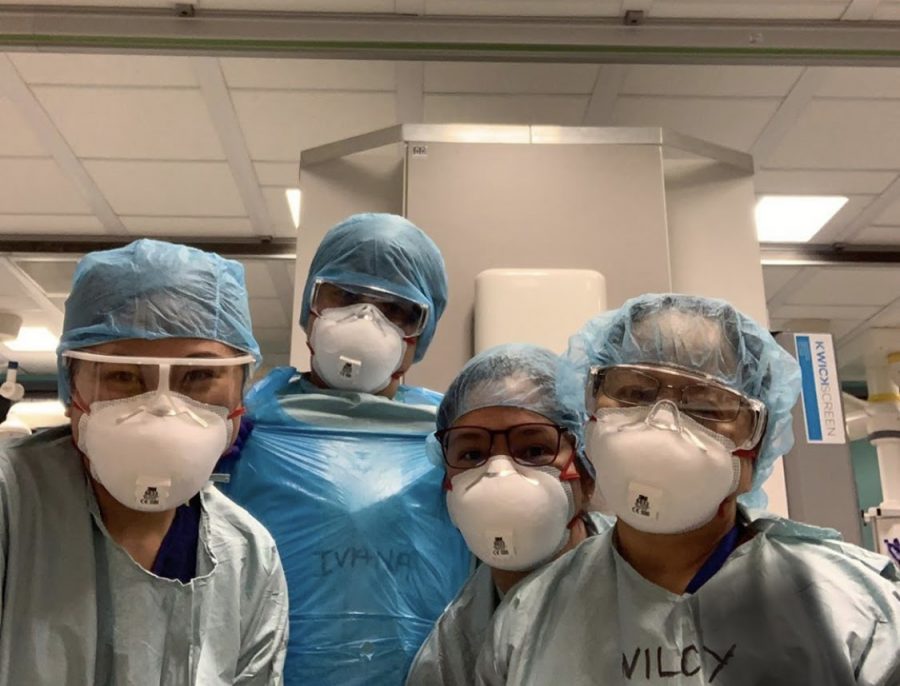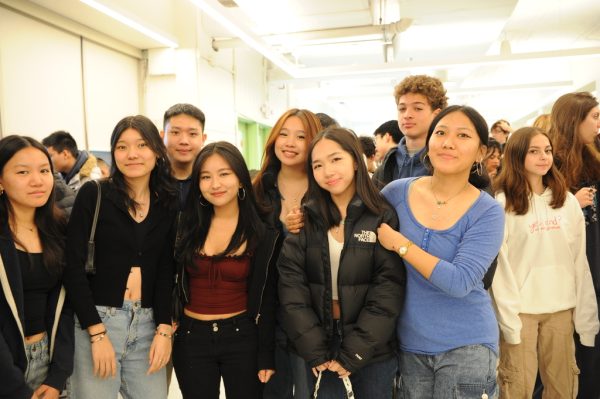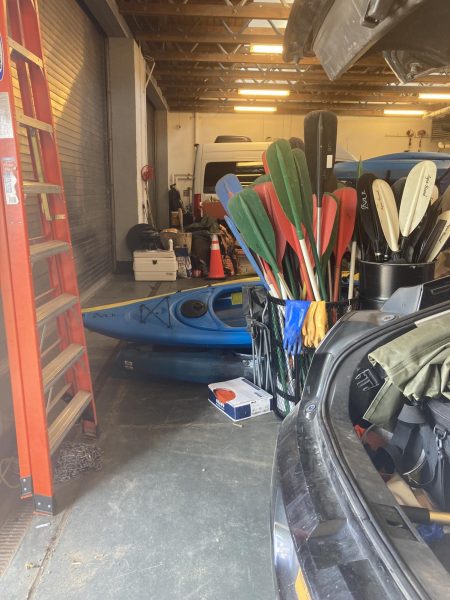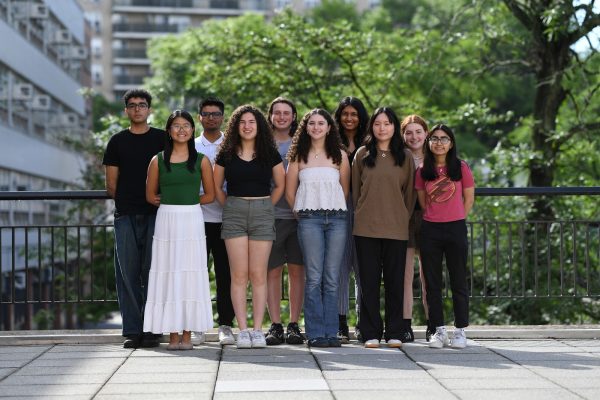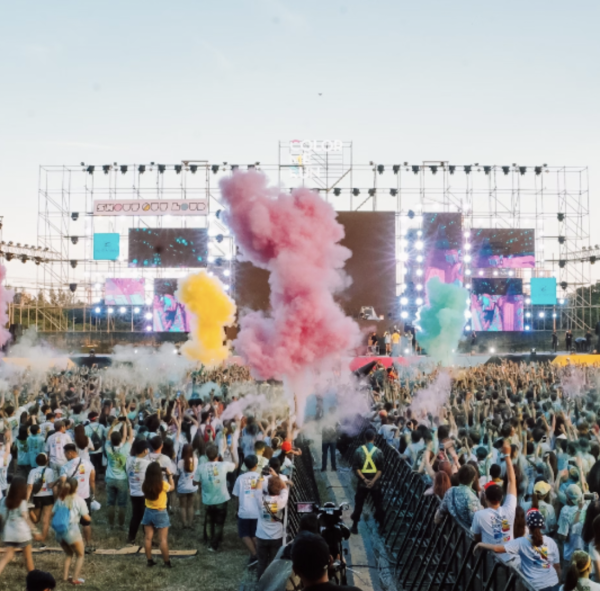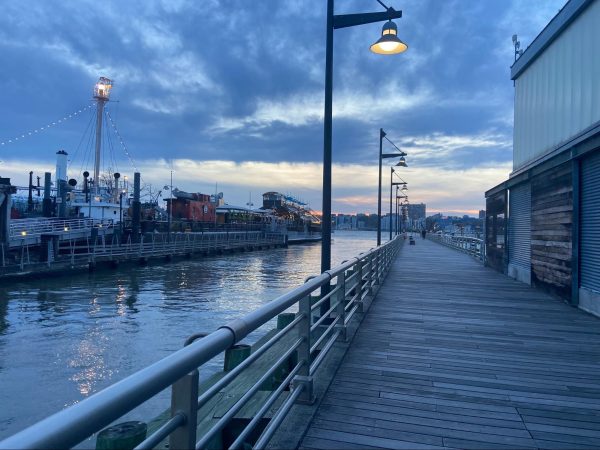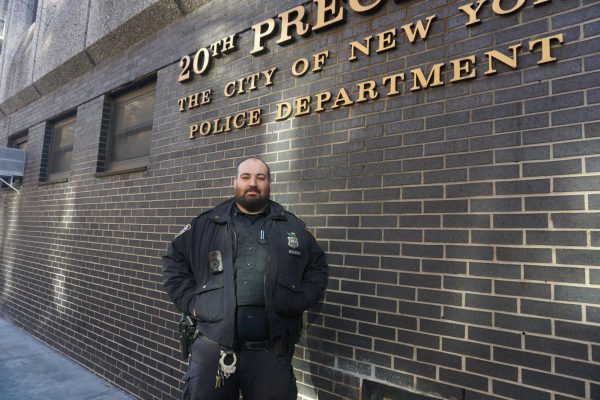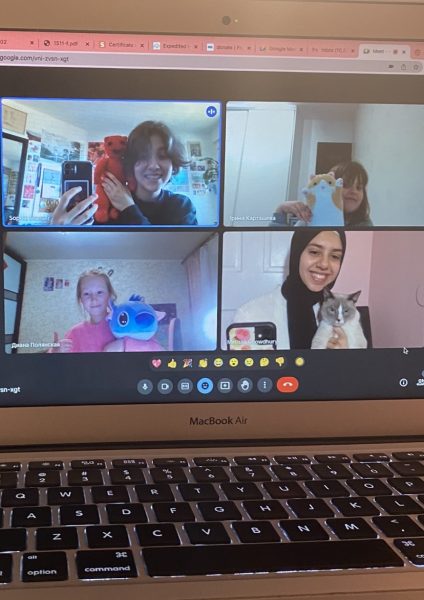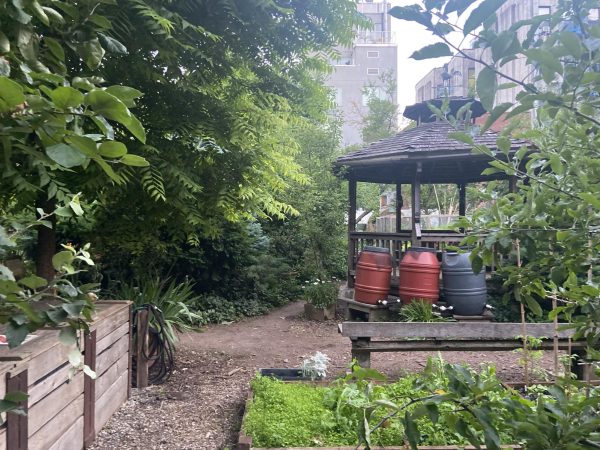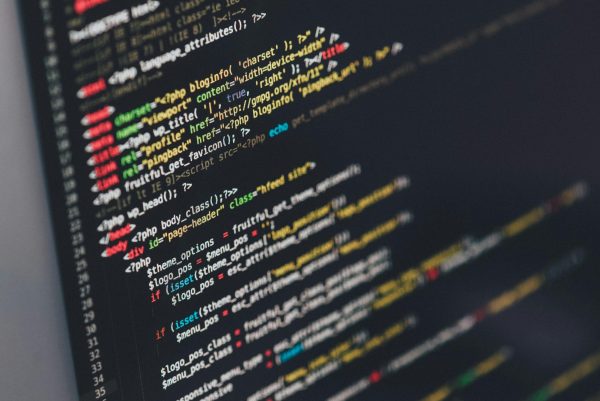Not All Heroes Wear Capes: Healthcare Professionals During the Coronavirus Pandemic
Karen Espiritu, a Registered Nurse at the University Hospital of Lewisham, and her co-workers must gear up before coming in contact with their patients.
March 1st, 2020 marks the day of the first case of COVID-19 reported in New York State. Since then life has changed rapidly; normally accustomed to bustling streets and jam-packed schedules, the majority of New Yorkers have been forced to adjust to a solitary lifestyle in the confines of their neighborhoods. Full of panic and uncertainty, many New Yorkers will not dare to leave their homes for days at a time. Although it seems as though daily life is on pause, many are in dire need of services, including medical attention. Healthcare professionals have continued to provide essential aid, wary of the accompanying risk.
The increasing demand for medical treatment has weighed heavily on both healthcare workers and their families. With both of her parents working on the front lines, Joan Liu ’21 has expressed concern for their safety. “I worry about them because they get stressed out from the workload and worry about getting me and my sister sick,” said Liu. As a Registered Nurse, her father has had to adapt to the immense demands of working in a pandemic. Nurse Liu said, “worries of getting infected, breaching infection control protocol, and ensuring prompt attention to clinical emergencies,” are just a few of the many things that he must take into consideration on a day-to-day basis. With so much at stake, it’s imperative to be wary and vigilant despite the challenges.
Samama Moontaha ’21 also shares her father’s experiences as a Pathology Laboratory Supervisor at Mount Sinai. He researches the causes and effects of COVID-19, using tissue samples from infected patients. Living in an apartment, she worries about the health of her family members who reside in such close quarters. “My grandma has a lot of medical problems, and my father’s daily contact with COVID-19 patients is a scary situation,” said Moontaha. In addition to taking the necessary precautions at work, Laboratory Supervisor Moontaha must also exercise caution at home. From self-isolating to taking proper sanitary measures, he has done everything in his power to keep his family safe, even if it means limiting his contact with his loved ones.
Beyond the Bronx Science community, all medical providers have experienced their fair share of hardships. Personal protective equipment, or PPE, such as face shields, face masks, and goggles, all promote the safety of medical staff, limiting the transmission of droplets. Ideally, health experts agree that surgical masks must be disposed of after a single use. Due to the shortage of masks, companies have encouraged their employees to reuse masks for days—even weeks—at a time. Healthcare workers agree that the government has done little to alleviate their burdens. “From the lack of PPEs for healthcare workers to the slow response that led to many people dying,” said Karen Espiritu, a Registered Nurse at the University Hospital of Lewisham, such inaction has been gravely disappointing. Knowing that this disease attacks the most vulnerable, she said, “I’m scared for my loved ones, especially my above sixty-year-old parents, and I worry for myself, my husband, and my sister, who are all frontliners.”
Now working at full capacity, hospitals are under immense stress, and their healthcare workers are stretched thin from the staggering pressure. The abundance of COVID-19 patients entering hospitals has overwhelmed their already hardworking staff. Among the difficulties that medical workers face, PPEs are a hassle to put on, robbing them of precious minutes that could otherwise be spent with patients. “Every Medical Alert Event is exhausting and depressing if we lose the patient,” said Cherry Amor Maala, a Nurse at Mount Sinai. The loss of human life is heartbreaking and devastating for everyone involved. This situation has clearly taken an emotional toll on the nurses who want nothing more than to save human lives whenever possible. After recovering from COVID-19, Nurse Maala said, “It was the worst twenty-one days.” Experiencing firsthand how dreadful this disease is, she yearns for her family to stay safe and healthy.
In all of their years of experience, the aforementioned healthcare providers have never come across anything quite like COVID-19. “It’s like being in a battle, but you’re fighting with something invisible,” said Nurse Espiritu. Considering all of the potential risks that COVID-19 poses to these essential workers, some may wonder how they find the drive to continue working. “It’s my job, and every job is dangerous to some extent,” said Laboratory Supervisor Moontaha. “I’ve always had a passion for the medical field, and I took advantage of every inch of that passion.” Nurse Maala said, “My motivation is seeing my patients get better and go home.”
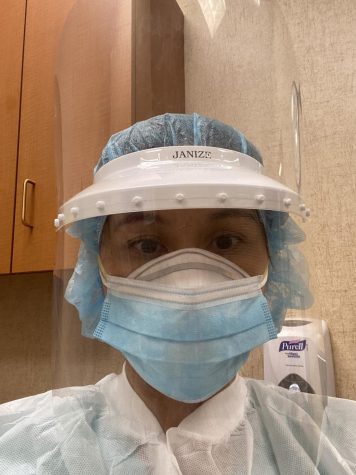
From strangers on the news to her dear friends, Janize Paredes, a Registered Nurse at Rogosin Institute, is profoundly disheartened by the fact that people closer and closer to her are becoming infected with COVID-19. Perhaps the most devastating part is the fact that no one can see their loved ones after they pass, due to the risk that it would pose to healthy family members.
As COVID-19 continues to claim more lives, many people are desperate for life to return to normalcy. “People are putting so much hope and faith in technological advancements that they’re forgetting to take their own initiatives. The key to health is self-care,” said Laboratory Supervisor Moontaha. Aside from adhering to social distancing regulations and maintaining proper hygiene, there are ways in which we can help during this difficult situation. In the Bronx Science community, students have begun to take matters into their own hands. Byul Sak ’21 organized her own fundraiser called “Masks of Love” on GoFundMe where anyone can donate to her cause. “I want the money to go towards funding masks for doctors and nurses at the front lines because it’s one of the most crucial supplies they need,” said Sak.
Each of us can play our own part by donating or raising awareness, and any small effort can go a long way. More than ever, it is important to help and support each other. The sooner we do so, the sooner we can proceed to a new normal.
“It’s like being in a battle but you’re fighting with something invisible,” said Nurse Espiritu.
Jaymie Paredes is a Managing Editor/Advisory Editor for ‘The Science Survey.’ Aside from composing articles, she helps to manage deadlines to make...

